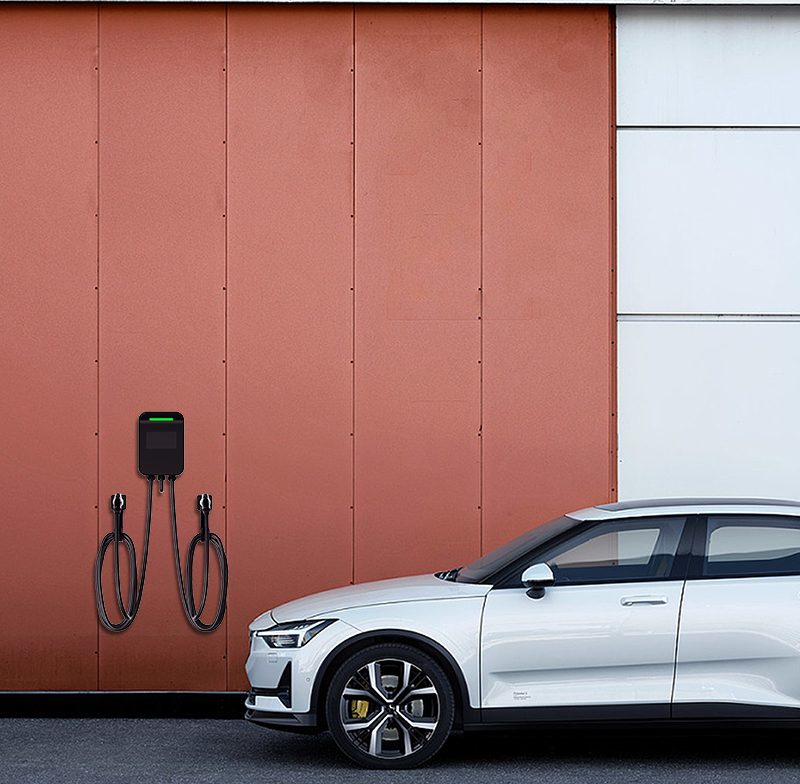Amp 100A 20-40 KW DC fast wall & pedestal charger for electric car outdoor
Best DC EV Charger
Model Name: L3S-DC20KW L3S-DC30KW L3S-DC40KW
Phases /Lines:3P+PE+N:3P
Voltage:208 / 480Vac(±10%)
Frequency:45-65Hz
Charging Outlet:CCS1 / NACS
Voltage(DC):200~1000V
Current(Max):100A /100A /125A
Power(Max):18.8kW/20kW /30kW /40kW
Charger v.s. EV:PLC(DIN 70121: 2012/ISO15118-2: 2013)
Communication Protocol:OCPP1.6 J / OCPP2.0.1
Network Interface:Wifi / 3G-3G(SIM card) / Ethernet
Interface:CAN Bus / RS485
Cutting-Edge Features of DC EV Chargers for Modern Charging Needs
DC EV chargers are revolutionizing the electric vehicle (EV) charging industry with advanced features that ensure efficiency, convenience, and reliability. The integration of IP54 and IK10 ratings ensures that these chargers are robust and durable, with waterproof and impact-resistant properties, making them suitable for both indoor and outdoor installations. The OCPP 1.6 J and OCPP 2.0.1 protocols offer seamless communication between the charging station and the central system, ensuring remote monitoring and upgradability. With ISO15118-2 compatibility, these chargers also support Plug&Charge for enhanced user experience, simplifying the charging process. The 7” touch screen provides a user-friendly interface, while power sharing functionality allows multiple vehicles to charge simultaneously without overloading the system.
Enhancing User Experience with Advanced DC EV Charger Technology
The latest DC EV chargers are designed not only for speed but also for enhanced user experience. By offering CCS1 and NACS compatibility, they cater to a wide range of electric vehicles, ensuring flexibility in charging options. The integration of OCPP 1.6 J and OCPP 2.0.1 enables robust network communication, allowing users to access real-time information and remotely manage their charging sessions. These chargers also feature power sharing, optimizing energy distribution and making it possible to charge multiple vehicles at once without compromising on speed. With the 7” touch screen, the user interface is simple and intuitive, providing essential details like charging status, power levels, and estimated time to completion. Moreover, with ISO15118-2 support, Plug&Charge functionality makes the charging process seamless, eliminating the need for manual authentication and improving the overall user experience.
Understanding the EV Charging Station Business Model and Key Players
With the rise of electric vehicles (EVs), electric charging station companies are becoming an essential part of the infrastructure. These companies play a crucial role in supporting the growing demand for EV chargers by offering a variety of charging solutions. The EV charging station business model varies widely depending on the goals and resources of the operators. Some companies focus on public charging stations, while others specialize in residential or commercial charging solutions.
A popular business model involves charging as a service, where businesses install charging stations and charge users based on the amount of electricity consumed or the time spent charging. Some operators also implement subscription-based models, offering customers a fixed monthly fee for unlimited charging access. Additionally, advertising partnerships and networked solutions are emerging as additional revenue streams for charging companies. As EV adoption continues to rise, the business model is expected to evolve, with increased focus on smart charging, power sharing, and renewable energy integration to enhance sustainability and profitability.



















